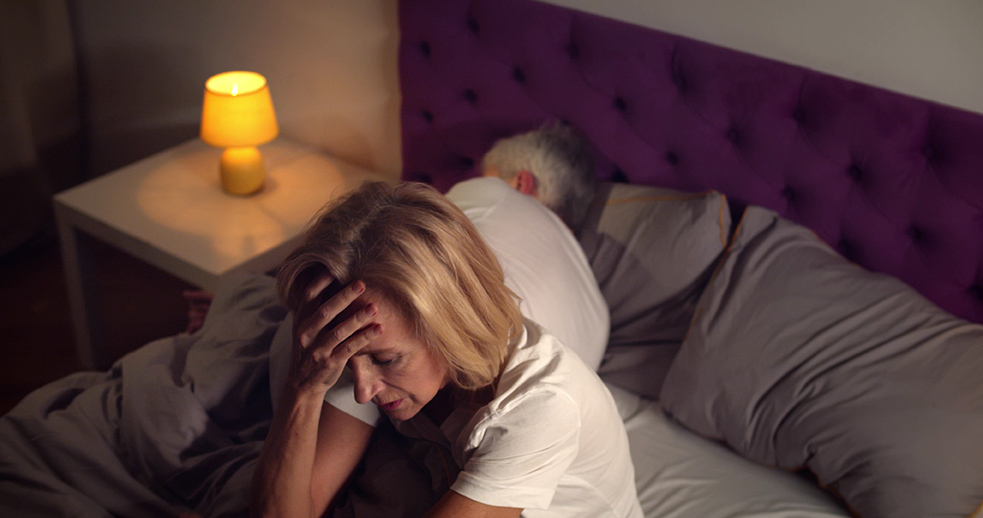
Stress and Anxiety in Parkinson’s
Stress and anxiety can be difficult to manage for anyone, but when it comes alongside Parkinson’s disease everything is exacerbated. It is important to understand what happens physically when you are feeling stress or anxiety to manage these feelings.
Stress is the body’s reaction to harmful situations, whether real or perceived. When you feel threatened , a chemical reaction occurs that allows you to act to prevent injury. This reaction is “fight or flight”. During this stress response, your heart rate goes up, breathing quickens, muscles tighten and blood pressure rises.
Our bodies are able to handle small doses of stress but not long-term chronic stress. So it is important to talk with your doctor if you are experiencing stress and/or anxiety. Physical symptoms include:
- Low energy
- Headaches
- Upset stomach (constipation, diarrhea, and nausea)
- Aches, pains, and tense muscles
- Chest pain and rapid heartbeat
- Insomnia
- Frequent colds and infections
- Loss of sexual desire and/ or ability
- Nervousness and shaking, ringing in ears and or cold and sweaty hands
- Dry Mouth
- Clenched jaw and grinding teeth
Although our bodies function better in a relaxed and neutral state, the reality is that our lives are filled with stresses that can lead to anxiety and unrest. These stresses can affect your health and worsen the symptoms of Parkinson’s Disease. It is important to figure out what may be causing the stress and find tools to deal with these stressors causing anxiety. Finding balance is a necessity as a person with PD or their caregiver.
To manage stress, you need to identify the triggers so that you can find healthy ways to work through them. Writing in a journal, taking a walk or even hitting a pillow can help deal with stress. Here are some other ways to manage stress:
- Doing Yoga
- Practicing Breathing Exercises
- Meditation
- Getting a massage
- Take a walk
- Attend an Exercise Class
- Talk with friends
Anxiety and Parkinson’s Disease
Anxiety is a common non-motor symptom of PD and is caused by changes in the brain chemistry. It affects up to 40% of those with PD. There are several forms of anxiety that one with PD can experience.
Generalized Anxiety Disorder is characterized by feelings of nervousness and recurring thoughts of worry and fear. Physical symptoms may also accompany these feelings and can include butterflies in the stomach, nausea, trouble beathing or swallowing, racing of the heart, sweating and increased tremors.
Anxiety or Panic Attacks can occur when one has a sense of severe physical and emotional distress. It may feel as if they cannot breathe or they are having a heart attack. These can last a few minutes or even and hour.
Social Avoidance is also common with Parkinson’s and involves avoiding social situations due to fear of embarrassment caused by PD symptoms such as tremor, dyskinesias, or trouble walking.
Obsessive-Compulsive Disorder may cause unwelcome thoughts or images and the urge to engage in certain rituals to try to control or rid themselves of these thoughts.
While anxiety can be experienced on its own, it is commonly seen with depression. If left unchecked, anxiety can worsen your overall health condition.
Causes of anxiety can include both Psychological and Biological Factors
Psychological Factors are common fears and worries that go along with PD and may trigger anxiety. One is the fear of not being able to function independently, especially during an “OFF” period when their medications are not working.
Biological Factors include when the brain pathways and chemicals affected by PD are the same as those affected by anxiety and depression. In some cases, anxiety is directly related to changes in motor symptoms. Especially in those experiencing “OFF” periods and the worry of not being able to function normally.
Symptoms of anxiety include:
- Excessive Fear and Worry
- Uncontrolled or unwanted thoughts
- Sudden waves of terror
- Nightmares
- Ritualistic behaviors
- Problems Sleeping
- Pounding heart
- Cold and sweaty hands
- Dizziness
- Nausea
Anxiety can be treated with medications and psychological counseling. Depending on the severity you may only need therapy, but if necessary, medication may be used in conjunction with the therapy.
Other ways to help with anxiety include:
- Relaxation Techniques
- Massage therapy
- Acupuncture
- Aromatherapy
- Meditation
- Music Therapy
Tips on Living with Anxiety:
- Educate yourself about PD and anxiety.
- Keep a journal about mood, medications, and symptoms.
- Pay attention to what triggers your anxiety.
- Talk with your Dr. about anxiety.
- Tell others how you are feeling so they can help you manage and cope.
- Find a support group for those with PD.
- Understand that symptoms change and it one coping strategy does not work, try another approach.
- Know that everyone experiences anxiety differently.
Sources for post
https://www.parkinson.org/library/fact-sheets/anxiety
https://www.parkinson.org/blog/how-stress-and-stress-management-impact-parkinsons

